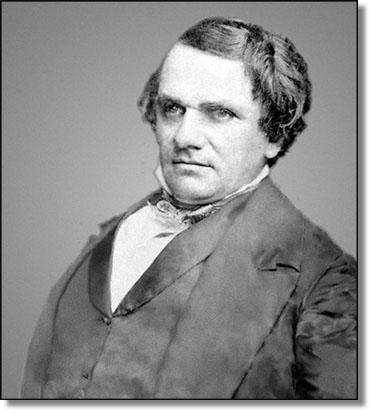| Since
so much of the perimeter of the picture was mutilated beyond identification,
I decided to use the "crop" tool to isolate the restorable area of the
image.
Next, I used the trusty "lasso" to outline the image, then inverted the selected area and "cut" it to a medium gray. Then I used the "radial gradient" tool to create the light to dark shade out from Douglas' head. I decided to try something new on the coat. I thought it looked smooth and satiny, so I experimented with the "smudge" tool. With it, I could make a swirling motion that blended out the scratches while preserving the light and dark tones. Additionally, I could drag it along the contours of folds (and the hair) to effect the same result. On the face I used the "rubber stamp" as well as the "smudge" tool. Lastly, I added a small amount of "noise" to the coat and face to keep them from being too smooth. The eyes, however, are a problem. Even though this is probably a glass plate photo with faster exposure times than daguerreotypes, sitters still had to pose for nearly a minute. One can slow the breathing to minimize blur around the chest fairly easily, but controlling rapid blinking and "eye darting" is a lot tougher. As a result, in many early portraits the eyes seem to be out of focus. ©
1999 by Gene Brawn |
|
